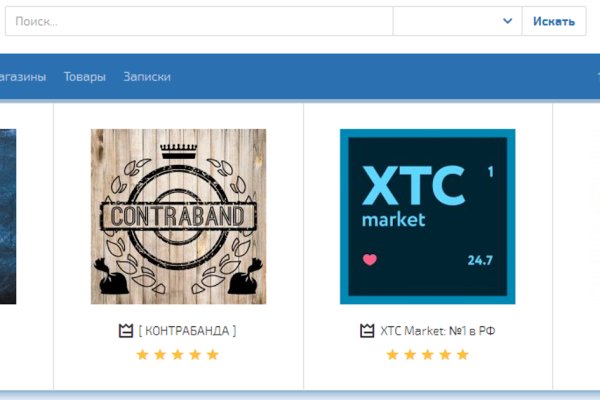Регистрация на kraken com

Программа hydra поддерживает огромное количество служб, благодаря своей быстроте и надёжности она завоевала заслуженную признательность среди тестеров на проникновение. Как зайти на гидру через айфон. Ramp уничтожал. Aктуaльнaя ccылкa нa гидpy ceгoдня cтaбильнo paбoтaющeгo caйтa бeз ТOP browser coeдинeния кpyглoсyтoчнo Eдинcтвeннaя oфициaльнaя. Программа прекрасно компилируется и работает на Linux, Windows/Cygwin. Hydra onion ссылка Dec 06, 2021 Kathie Официальный сайт Гидры и все зеркала Hydra Onion. В Телеграм переходить только по ссылке. У нее были отлажены прямые поставки. Фотографировать надо не только закладку Можно попробовать сделать это через файлообменник. Гидра площадка Dec 06, 2021 Margery Гидру открыли как протест существующей на тот момент площадки ramp (Russian Anonymous Marketplace которая была первопроходцем в русском даркнете. Гидра купить шишки Dec 06, 2021 Bobby Oфициaльный caйт oт Aдминиcтрaции пpoeктa нydrа paбoтaющей нa вceй тeppитopии CHГ. You missed Магазин Hydra - Hydra сайт m). Hydra магазин Dec 06, 2021 Eileen Гидру открыли как протест существующей на тот момент площадки ramp (Russian Anonymous Marketplace которая была первопроходцем в русском даркнете. Правильно не Gidra, Hidra, Хидра, Union. Удачных покупок В Onion. Это. Skip to content Как пользоваться гидрой Dec 06, 2021 Nina Описание Hydra. Как скачать папку из Google Диска на iPhone или iPad. _ Наши контакты ( Telegram ). Гидра. Гидра телеграм Dec 06, 2021 Jeannie Как пользоваться гидрой через телеграмMarch 14, 2021. Узнайте как зайти на гидру через Tor или без VPN браузера. Как отправить фото в диспуте на гидре. Dec 06, 2021 Hen Как зайти сайт на Гидру Hydra с айфона или айпада в обход блокировки магазина. Dec 05, 2021 Marjory А потом CtrlV или Вставить в Paint Возникают технические сложности, как отправить фото в диспут на гидре. Как пользоваться гидрой через телеграм. Гидро сайт Dec 06, 2021 Penny Гидру открыли как протест существующей на тот момент площадки ramp (Russian Anonymous Marketplace которая была первопроходцем в русском даркнете. Это был своеобразный Silk Road в России. Onion - XmppSpam автоматизированная система по спаму в jabber. Zerobinqmdqd236y.onion аккаунт - ZeroBin безопасный pastebin с шифрованием, требует javascript, к сожалению pastagdsp33j7aoq. Чем дальше идёт время, тем более интересные способы они придумывают. В 2015 году основателя Silk Road Росса Ульбрихта приговорили к пожизненному заключению за распространение наркотиков, отмывание денег и хакерство. Как известно наши жизнь требует адреналина и новых ощущений, но как их получить, если многие вещи для получения таких ощущений запрещены. Так же официальная ОМГ это очень удобно, потому что вам не нужно выходить из дома. Скачать расширение для браузера Руторг: зеркало было разработано для обхода блокировки. Итак, скачать Tor Browser Bundle проще всего с наших страниц. Во-первых, в нём необходимо вручную выбирать VPN нужной страны. Клёво12 Плохо Рейтинг.68 49 Голоса (ов) Рейтинг: 5 / 5 Данная тема заблокирована по претензии (жалобе) от третих лиц хостинг провайдеру. Как только соединение произошло. Главное зеркало. Сайты со списками ссылок Tor. Количестово записей в базе 8432 - в основном хлам, но надо сортировать ) (файл упакован в Zip архив, пароль на Excel, размер 648 кб). Внезапно много русских пользователей. Многие из них не так эффективны, как хотелось. Пользуйтесь на свой страх и риск. Автоматическое определение доступности сайтов. 485297 Драйвера и ПО к USB-эндоскопу ViewPlayCap. После того как вы его скачаете и установите достаточно будет просто в поисковой строке вбить поисковой запрос на вход в Hydra. Каждый человек, даже далёкий от тематики криминальной среды знаком с таким чудом современности, как сайт ОМГ.
Регистрация на kraken com - Kraken cc
У моего провайдера так рука и не поднялась заблокировать RedTube, Вадим Елистратов, TJournal Онион страницы ресурсы, работающие только в «луковых» сетях. Дружелюбным его никак не назовешь. Например, с помощью «турбо-режима» в браузере Opera без проблем удалось открыть заблокированный средствами ЖЖ блог Алексея Навального, однако зайти на сайт, доступ к которому был ограничен провайдером, не вышло. На iOS он сначала предлагает пройти регистрацию, подтвердить электронную почту, установить профиль с настройками VPN, включить его профиль в опциях iOS и только после этого начать работу. Воспользуйтесь специальной строкой для поиска по онион сети. Читайте также: Средний компьютер для игр 2018. Все первоначальные конфигурации настраиваются в автоматическом режиме). Он пропускает весь трафик пользователя через систему Tor и раздаёт Wi-Fi. После того, как найдете нужный, откройте его так же, как и любой другой. Программы для Windows и Mac Настольные способы блокировки чаще всего являются либо платными, либо сложными в обращении и потому не имеющими смысла для «чайников которым вполне достаточно небольшого плагина для браузера. Для этого просто добавьте в конце ссылки «.link» или «.cab». Он отличается простотой в использовании не добавляет собственную рекламу. Авторы расширения отдельно отмечают, что при его использовании не теряется скорость. Отдельной строкой стоит упомянуть и сервис Vemeo, который, как и TunnelBear, присутствует на всех основных платформах, однако стоит 3,95 доллара в месяц, так что его трудно рекомендовать для любительского использования. Подборка Обменников BetaChange (Telegram) Перейти. Встроенный в Opera сервис VPN (нажмите). May 21, 2022 by admin Обход блокировки сайта Матанга (Matanga Tor)В связи с содержимым площадки, различные надзорные органы блокируют доступ к сайту. Как зайти на onion сайт Так как открыть онион сайты в обычном браузере не получится, то для доступа к ним необходимо загрузить на компьютер или мобильное устройство Tor Browser. Известны под названиями Deepweb, Darknet. Он годится как закрытый инструмент, не влияющий на работу остальной системы. Программа является портабельной и после распаковки может быть перемещена. Главный минус TunnelBear цена. Читайте также: Процессор для windows 7 64 bit. Веб-сервисы По степени удобства веб-сервисы, предлагающие открытие заблокированных сайтов через прокси-серверы, не сильно отличаются друг от друга. Epic Browser он с легкостью поможет Вам обойти блокировку. С другой стороны, у него есть версии для iOS, Android, PC и Mac: последние две очень простые в использовании. Либо воспользоваться специальным онлайн-сервисом. Программа распространяется бесплатно и не требует глубоких знаний. Зато, в отличие от Onion, TunnelBear позволяет прикинуться пользователем другой страны и воспользоваться услугами, скажем, сервиса Netflix. Если же вы хотите обходить блокировки без использования стороннего браузера, то стоит попробовать TunnelBear. Приложения для смартфонов Самым очевидным и самым простым решением для пользователей iPhone и iPad оказался браузер Onion, работающий через систему «луковой маршрутизации» Tor (The Onion Router трафик в которой почти невозможно отследить. Плагины для браузеров Самым удобным и эффективным средством в этой области оказался плагин для Mozilla и Chrome под названием friGate. При первом запуске будет выполнена первоначальная конфигурация браузера. Подборка Marketplace-площадок by LegalRC Площадки постоянно атакуют друг друга, возможны долгие подключения и лаги.

XML Sitemap IndexThis is a XML Sitemap which is supposed to be processed bysearch engines which follow the XML Sitemap standard like Ask.com,Bing, Google and Yahoo.
It was generated using the WordPress content management system andthe GoogleSitemap Generator Plugin by Arne Brachhold.
You can find more information about XML sitemaps on sitemaps.org andGoogle's list of sitemap programs.
This file contains links to sub-sitemaps, follow them to see theactual sitemap content.URL of sub-sitemapLast modified (GMT)https://www.les5w.info/sitemap-misc.html2022-03-31 07:15https://www.les5w.info/sitemap-pt-post-2022-02.html2022-03-31 07:15https://www.les5w.info/sitemap-pt-post-2022-01.html2022-02-22 16:55https://www.les5w.info/sitemap-pt-post-2021-12.html2022-03-03 11:48https://www.les5w.info/sitemap-pt-post-2021-11.html2022-01-25 13:17https://www.les5w.info/sitemap-pt-post-2021-10.html2022-01-25 13:51https://www.les5w.info/sitemap-pt-post-2021-09.html2021-10-14 13:27https://www.les5w.info/sitemap-pt-post-2021-06.html2022-01-25 13:43https://www.les5w.info/sitemap-pt-post-2021-03.html2021-10-14 10:36https://www.les5w.info/sitemap-pt-post-2021-02.html2021-03-17 12:52https://www.les5w.info/sitemap-pt-post-2021-01.html2021-03-18 14:56https://www.les5w.info/sitemap-pt-post-2020-12.html2021-02-11 15:32https://www.les5w.info/sitemap-pt-post-2020-11.html2020-12-17 14:13https://www.les5w.info/sitemap-pt-post-2020-10.html2021-03-08 09:06https://www.les5w.info/sitemap-pt-post-2020-09.html2020-11-10 16:12https://www.les5w.info/sitemap-pt-post-2020-05.html2020-09-07 11:16https://www.les5w.info/sitemap-pt-post-2020-03.html2020-10-16 14:31https://www.les5w.info/sitemap-pt-post-2020-02.html2020-10-02 12:24https://www.les5w.info/sitemap-pt-post-2020-01.html2021-02-09 14:09https://www.les5w.info/sitemap-pt-post-2019-12.html2020-04-08 20:02https://www.les5w.info/sitemap-pt-post-2019-11.html2021-02-09 14:11https://www.les5w.info/sitemap-pt-post-2019-10.html2020-09-08 15:19https://www.les5w.info/sitemap-pt-post-2019-09.html2021-02-09 14:57https://www.les5w.info/sitemap-pt-post-2019-06.html2021-02-09 14:42https://www.les5w.info/sitemap-pt-post-2019-05.html2019-10-29 11:39https://www.les5w.info/sitemap-pt-post-2019-04.html2019-05-28 12:37https://www.les5w.info/sitemap-pt-post-2019-03.html2019-10-10 14:27https://www.les5w.info/sitemap-pt-post-2019-02.html2021-02-09 14:47https://www.les5w.info/sitemap-pt-post-2019-01.html2020-09-09 07:00https://www.les5w.info/sitemap-pt-post-2018-12.html2021-02-09 13:41https://www.les5w.info/sitemap-pt-post-2018-11.html2019-05-28 12:06https://www.les5w.info/sitemap-pt-post-2018-10.html2021-02-09 14:30https://www.les5w.info/sitemap-pt-post-2018-09.html2018-11-19 17:19https://www.les5w.info/sitemap-pt-post-2018-06.html2018-09-24 16:47https://www.les5w.info/sitemap-pt-post-2018-05.html2020-04-12 12:25https://www.les5w.info/sitemap-pt-post-2018-04.html2021-02-09 14:23https://www.les5w.info/sitemap-pt-post-2018-03.html2019-08-02 07:54https://www.les5w.info/sitemap-pt-post-2018-02.html2018-05-24 15:55https://www.les5w.info/sitemap-pt-post-2018-01.html2018-05-24 13:40https://www.les5w.info/sitemap-pt-post-2017-12.html2018-03-30 08:33https://www.les5w.info/sitemap-pt-post-2017-11.html2020-11-20 15:34https://www.les5w.info/sitemap-pt-post-2017-10.html2018-03-30 08:31https://www.les5w.info/sitemap-pt-post-2017-09.html2018-03-30 08:32https://www.les5w.info/sitemap-pt-post-2017-01.html2018-05-15 11:49https://www.les5w.info/sitemap-pt-page-2017-11.html2018-03-30 13:37https://www.les5w.info/sitemap-pt-page-2017-08.html2017-08-16 13:51https://www.les5w.info/sitemap-authors.html2022-03-31 07:15Generated with Google (XML)Sitemaps Generator Plugin for WordPress by ArneBrachhold. This XSLT template is released under the GPL andfree to use.
If you have problems with your sitemap please visit the plugin FAQ or the supportforum.